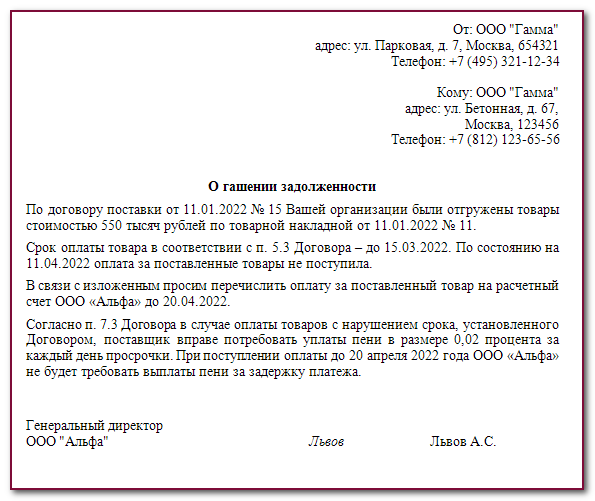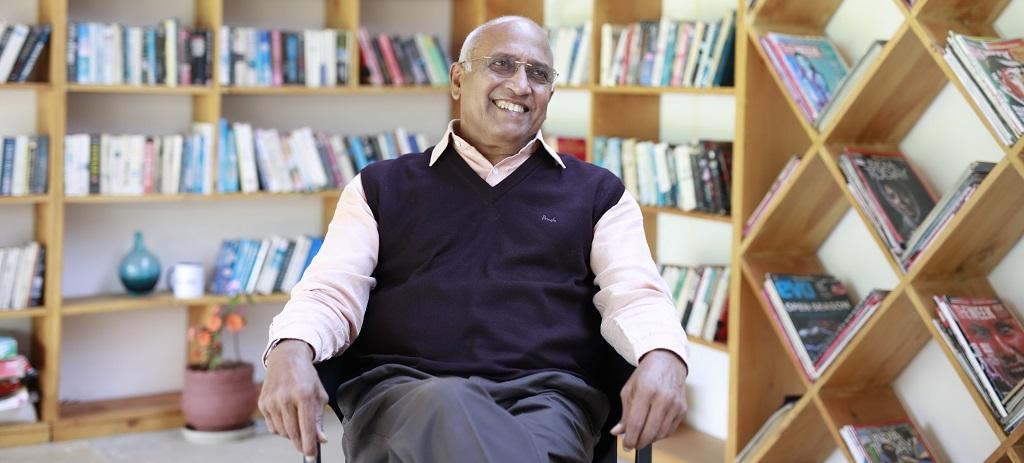Promoting "Made In Pakistan": Ahsan Advocates For Technological Advancement

Table of Contents
The Current State of "Made in Pakistan"
Challenges Facing Pakistani Manufacturers
The Pakistani manufacturing sector faces numerous hurdles that hinder its progress. These challenges significantly impact the perception and competitiveness of "Made in Pakistan" products globally.
- Lack of Technological Investment: Many factories rely on outdated machinery and lack the resources to adopt modern technologies, impacting productivity and quality.
- Outdated Infrastructure: Inadequate power supply, unreliable transportation networks, and insufficient digital connectivity create significant operational challenges.
- Inconsistent Quality Control: A lack of standardized quality control procedures leads to inconsistencies in product quality, damaging the reputation of "Made in Pakistan" goods.
- Limited Access to International Markets: Navigating international trade regulations and accessing global distribution networks pose significant barriers for Pakistani manufacturers.
- Competition from Cheaper Imports: Pakistan faces stiff competition from countries with lower labor costs and subsidized industries.
- Skilled Labor Shortages: A gap exists between the skills possessed by the workforce and the demands of modern manufacturing processes. Upskilling and reskilling initiatives are crucial.
- High Energy Costs: Elevated energy prices increase production costs, making Pakistani goods less competitive in the global market.
These challenges significantly hamper the growth of the "Made in Pakistan" brand. Addressing these issues requires a multi-pronged approach, encompassing technological upgrades, policy reforms, and strategic investment.
Existing Strengths of the Pakistani Manufacturing Sector
Despite the challenges, Pakistan possesses considerable strengths that can be leveraged to achieve significant growth.
- Skilled Workforce in Certain Sectors: Pakistan boasts a skilled workforce, particularly in sectors like textiles, where expertise in craftsmanship and production is widely prevalent.
- Potential for Growth in Specific Industries: Sectors like pharmaceuticals, food processing, and information technology offer significant growth potential with the right investments.
- Existing Export Networks: Pakistan has established export networks, providing a foundation for expanding the reach of "Made in Pakistan" products.
- Government Initiatives: Various government programs, such as the [mention specific government programs here, e.g., export development schemes], aim to support the manufacturing sector. However, further strengthening and targeted implementation are required.
These strengths, combined with strategic technological advancements, offer a solid foundation for transforming the "Made in Pakistan" brand into a global symbol of quality and innovation.
Ahsan's Advocacy for Technological Advancement in Pakistani Manufacturing
Specific Technological Solutions Advocated by Ahsan
Ahsan advocates for a significant technological overhaul of the Pakistani manufacturing sector. Their vision focuses on implementing practical solutions that directly address the challenges outlined earlier.
- Automation: Ahsan champions the adoption of automation technologies to increase productivity, reduce reliance on manual labor, and enhance precision in manufacturing processes. This includes the implementation of robotic systems and automated assembly lines.
- Artificial Intelligence (AI): Ahsan promotes the use of AI-powered systems for quality control, predictive maintenance, and supply chain optimization.
- Improved Machinery: Upgrading to state-of-the-art machinery is crucial to improve efficiency, reduce waste, and enhance the quality of "Made in Pakistan" products.
- Supply Chain Management Software: Implementing robust supply chain management software can streamline processes, reduce costs, and improve delivery times.
“[Insert a quote from Ahsan here emphasizing the importance of technology adoption]”, says Ahsan. These technologies, when implemented effectively, can transform the productivity and competitiveness of Pakistani manufacturers.
The Economic Impact of Technological Adoption
The adoption of Ahsan's proposed technological solutions would yield substantial economic benefits for Pakistan.
- Increased Productivity: Automation and improved machinery will lead to significant increases in output per worker.
- Higher Quality Products: Technological advancements will enhance product quality, leading to improved brand reputation and higher market value.
- Reduced Costs: Efficiency gains through automation and optimized processes will reduce production costs, making Pakistani goods more competitive.
- Improved Competitiveness in International Markets: Higher quality, lower costs, and improved efficiency will allow Pakistani manufacturers to compete effectively in the global market.
- Job Creation: While some jobs might be displaced by automation, new opportunities will arise in areas such as technology maintenance, software development, and data analysis.
- Economic Growth: Increased productivity, exports, and investment will contribute significantly to Pakistan's overall economic growth.
- Improved Export Earnings: The enhanced competitiveness of "Made in Pakistan" products will lead to a significant increase in export revenue.
Strategies for Promoting "Made in Pakistan" through Technology
Government Policies and Initiatives
The government plays a crucial role in fostering technological advancement within the manufacturing sector.
- Tax Incentives: Offering tax breaks and incentives for businesses investing in technology upgrades will encourage adoption.
- Subsidies for Technology Upgrades: Providing financial assistance for purchasing modern machinery and software will ease the financial burden on manufacturers.
- Training Programs for Workers: Investing in comprehensive training programs to equip workers with the skills needed to operate and maintain new technologies is essential.
- Infrastructure Improvements: Improving power supply, transportation networks, and digital connectivity will create a more conducive environment for technological advancement.
Role of Private Sector Investment
The private sector is a key driver of innovation and investment.
- Encourage Private Sector Investment in R&D: Incentivizing private sector investment in research and development will foster innovation and the development of new technologies.
- Partnerships between Local and International Companies: Facilitating collaborations between local and international companies will provide access to advanced technologies and expertise.
- Access to Funding for Technology Adoption: Ensuring access to financing for technology upgrades will empower manufacturers to implement necessary changes.
Marketing and Branding Strategies
A strong marketing strategy is critical to building a positive perception of "Made in Pakistan" products.
- Highlighting the Quality and Innovation of "Made in Pakistan" Products: Focusing on the quality, innovation, and craftsmanship of Pakistani products will improve their image.
- Targeting International Markets Effectively: Developing targeted marketing campaigns for key international markets will increase brand awareness and sales.
- Using Digital Marketing Tools: Leveraging digital marketing tools such as social media, e-commerce platforms, and search engine optimization will expand market reach.
- Building a Strong Brand Identity: Creating a consistent and compelling brand identity will establish a strong recognition and trust in "Made in Pakistan" products.
Conclusion
Promoting "Made in Pakistan" requires a concerted effort focused on technological advancement. Ahsan's advocacy highlights the urgent need for modernizing Pakistan's manufacturing sector. By addressing the challenges, leveraging existing strengths, and implementing the strategies outlined above—including government support, private sector investment, and effective marketing—Pakistan can significantly enhance the competitiveness of its products on the global stage. The future of "Made in Pakistan" lies in embracing technology, fostering innovation, and building a strong brand identity. Let's support Pakistani manufacturers, advocate for policies that promote technological advancement, and help elevate the "Made in Pakistan" brand to new heights. Share this article and join the conversation – let's build a better future for Pakistani manufacturing together!

Featured Posts
-
 Saving Private Ryans Unscripted Moment A Cinematic Masterpiece
May 08, 2025
Saving Private Ryans Unscripted Moment A Cinematic Masterpiece
May 08, 2025 -
 Kontrakt Zhersona S Zenitom Podtverzhdenie Ot Zhurnalista O Summe V 500 000 Evro
May 08, 2025
Kontrakt Zhersona S Zenitom Podtverzhdenie Ot Zhurnalista O Summe V 500 000 Evro
May 08, 2025 -
 Top Cryptocurrency Investment Van Ecks 185 Prediction
May 08, 2025
Top Cryptocurrency Investment Van Ecks 185 Prediction
May 08, 2025 -
 Did Saturday Night Live Change Everything For Counting Crows
May 08, 2025
Did Saturday Night Live Change Everything For Counting Crows
May 08, 2025 -
 Betts Absence Dodgers Face Freeway Series Without Key Player
May 08, 2025
Betts Absence Dodgers Face Freeway Series Without Key Player
May 08, 2025
Latest Posts
-
 Tracking The Journey Of Rakesh Sharma Indias Pioneer In Space
May 09, 2025
Tracking The Journey Of Rakesh Sharma Indias Pioneer In Space
May 09, 2025 -
 Lisa Rays Air India Complaint Airline Denies Actors Claims
May 09, 2025
Lisa Rays Air India Complaint Airline Denies Actors Claims
May 09, 2025 -
 Khan Truong Dieu Tra Xu Ly Vu Bao Mau Tat Tre Em Tai Tien Giang
May 09, 2025
Khan Truong Dieu Tra Xu Ly Vu Bao Mau Tat Tre Em Tai Tien Giang
May 09, 2025 -
 High Daycare Fees Follow 3 000 Spent On Babysitting A Financial Burden
May 09, 2025
High Daycare Fees Follow 3 000 Spent On Babysitting A Financial Burden
May 09, 2025 -
 Indias First Man In Space Rakesh Sharmas Life And Legacy
May 09, 2025
Indias First Man In Space Rakesh Sharmas Life And Legacy
May 09, 2025
